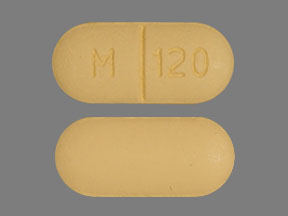Abacavir Disease Interactions
There are 2 disease interactions with abacavir.
NRTIs (applies to abacavir) hepatotoxicity
Major Potential Hazard, Moderate plausibility. Applicable conditions: Alcoholism, Liver Disease
Hepatotoxicity including lactic acidosis, severe hepatomegaly with steatosis, fulminant hepatitis, and hepatic failure has been associated with the use of some nucleoside reverse transcriptase inhibitors (NRTIs) alone or in combination with other antiretroviral agents. Therapy with NRTIs should be administered cautiously in patients with preexisting liver disease, a history of alcohol abuse, or hepatitis. Therapy should be suspended if clinical or laboratory findings suggestive of lactic acidosis or pronounced hepatotoxicity occur. The use of abacavir is contraindicated in patients with moderate to severe liver dysfunction as its safety and efficacy have not been established in these patients.
Abacavir (applies to abacavir) cardiovascular disease
Moderate Potential Hazard, Moderate plausibility. Applicable conditions: History - Myocardial Infarction, Hypertension, Hyperlipidemia, Diabetes Mellitus
Some clinical trials have reported increased risk of myocardial infarction in patients treated with abacavir. Although some of the findings are inconclusive, as a precaution, the underlying risk of coronary heart disease should be assessed before therapy, and action should be taken to minimize all modifiable risk factors such as hypertension, hyperlipidemia, diabetes mellitus, smoking, etc.
Switch to professional interaction data
Abacavir drug interactions
There are 54 drug interactions with abacavir.
Abacavir alcohol/food interactions
There are 3 alcohol/food interactions with abacavir.
More about abacavir
- abacavir consumer information
- Check interactions
- Compare alternatives
- Pricing & coupons
- Reviews (1)
- Drug images
- Side effects
- Dosage information
- During pregnancy
- Drug class: nucleoside reverse transcriptase inhibitors (NRTIs)
- Breastfeeding
- En español
Related treatment guides
Drug Interaction Classification
| Highly clinically significant. Avoid combinations; the risk of the interaction outweighs the benefit. | |
| Moderately clinically significant. Usually avoid combinations; use it only under special circumstances. | |
| Minimally clinically significant. Minimize risk; assess risk and consider an alternative drug, take steps to circumvent the interaction risk and/or institute a monitoring plan. | |
| No interaction information available. |
See also:
Further information
Always consult your healthcare provider to ensure the information displayed on this page applies to your personal circumstances.


